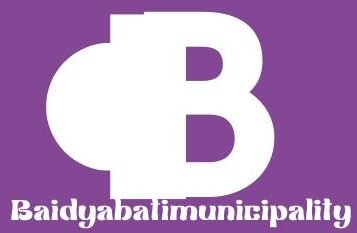The Social Security disbursement date for 65-year-olds born between 21-31 will conclude on February 26. Following this Social Security check only Supplemental Security Income payments will remain active on February 28th 2025.
New Powers

The government says that these measures will make the process of debt recovery more streamlined and efficient while cracking down on benefits fraud. Officials believe they can recover overpaid or fraudulently claimed benefits faster if they are allowed to bypass court orders. Ministers say this approach is a key part of cracking down on fraudulent activity in the benefits system and protecting public funds.
However, this power is also said to go beyond the issues of fraud, and target people who may have received payments incorrectly because of administrative errors.
Industry Concerns

UK Finance said banks have “some concerns” over the new powers. Economic crime and policy strategy director Daniel Cichocki supports the principle of fighting fraud but urged the need for balance. He warns that these measures could endanger vulnerable customers and run counter to current regulatory and legal obligations.
Cichocki has called for the government to take a more preventive approach in curbing fraud and errors within the benefits system rather than punitive measures. The banking industry is also not pleased with the obligation to furnish account information of claimants suspected of receiving erroneous payments, which they claim could result in unwarranted intrusions.
Justice Concerns
Big Brother Watch, a leading privacy advocacy group, strongly opposes the DWP’s new powers. The head of Big Brother Watch called the measures an assault on freedom and said the government had come up with a “digital surveillance system” against welfare claimants.
Carlo is quoted saying that the powers not only undermine the rights to privacy but may also cause harm severely to elderly and disabled people and low-income households because of the overreach or misdirected actions.
The lack of judicial oversight is another point the critics bring to light. In eliminating the requirement for a court order, they believe a two-tier justice system is being established, which unfairly affects the poor, those relying on welfare, and allows rich fraudsters and tax avoiders to be treated lightly.
Wider Consequences

Opponents are still concerned that this is a move by the government that will abuse such measures as well. A greater focus on fraudsters means an overemphasis on addressing payment errors, mainly errors made by the government when processing claims, will unfairly punish some claimants. Critics are also concerned that allowing mass access and surveillance data is a means to normalize surveillance as a prevention for fraud.
Right Balance
The debate over the DWP’s new powers highlights a tension between cracking down on fraud and safeguarding individual rights. While few disagree with the need to tackle serious fraud, critics argue that the government’s approach risks causing more harm than good. Balancing efficiency in fraud prevention with fairness and accountability remains a critical challenge.
Such extraordinary powers raise core questions of privacy, justice, and oversight within a welfare system that millions of people depend upon. When this legislation goes into effect, safeguards will be important to prevent harming vulnerable citizens with unintended consequences.
FAQs
1. Why are banks refusing to assist the DWP?
Some banks are reportedly reluctant to cooperate with the Department for Work and Pensions (DWP) in conducting new account checks due to privacy concerns, regulatory challenges, or potential customer backlash.
2. What are the new account checks for benefits claimants?
The DWP is implementing additional checks on bank accounts to prevent fraud and ensure that benefits are being claimed by eligible individuals. This may involve verifying savings, income, and other financial details.
3. How will these checks impact benefits claimants?
Some claimants may experience delays in receiving payments or be asked to provide additional financial information. In extreme cases, benefits could be paused or stopped if discrepancies are found.
4. Are these account checks legal?
Yes, the DWP has legal authority to conduct financial checks to prevent fraud. However, privacy advocates have raised concerns about the extent of these checks and potential data misuse.
5. What should benefits claimants do if their payments are affected?
Claimants should contact their bank and the DWP immediately if they face issues. Keeping financial records up to date and being transparent about savings and income can help prevent complications.



